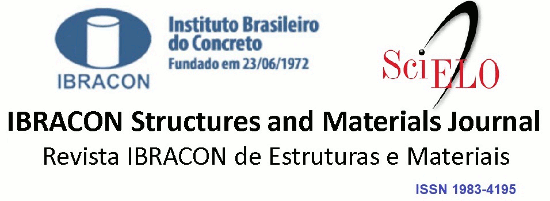Abstract
The influence of the combined addition of cellulose fibers (FC) and microcrystalline celluloses (MCC) on the fresh properties and hydration kinetics of cementitious composites was investigated. For this purpose, sixteen different formulations of FC-MCC celluloses in the cement matrix were analyzed, in which various cellulose fibers were 0.5%, 1.0%, and 1.5% and microcrystalline cellulose in 0.4%, 0.6% and 0.8% about the cement mass. The cementitious composites with the addition of FC-MCC celluloses were characterized in terms of rheological behavior, which was determined through the Squeeze flow method, fluidity through the mini-slump test, and hydration kinetics determined through the temporal evolution of the temperature of the mixtures. The initial hydration tests showed that the maximum addition of MCC (0.8%) used in this work reduced the maximum temperature of the cementitious composites, as well as the combination of FCs with MCC 0.8. Cellulose fibers took a longer time to reach the maximum temperature. The combined contents of FC 1.0-MCC 0.4 and FC 0.5-MCC 0.6 promoted an increase in the maximum temperature, which could indicate a dispersive effect of the cellulose particles with the cementitious system. The results of the compression flow showed that the studied samples presented a flow with very low loads and extended for a large part of the curve. Te increase in the amount of cellulose fiber alters the main phenomena related to flow: with a high cellulose content (FC 1.5%) there is an increase in friction between the particles, leading to the conclusion that the amount of cellulose fibers in the cementitious system influences on the rheological behavior and the occurrence of phase separation.
Keywords:
nanomaterials; squeeze flow; cement system; phase separation

 Thumbnail
Thumbnail
 Thumbnail
Thumbnail
 Thumbnail
Thumbnail
 Thumbnail
Thumbnail
 Thumbnail
Thumbnail
 Thumbnail
Thumbnail
 Thumbnail
Thumbnail






